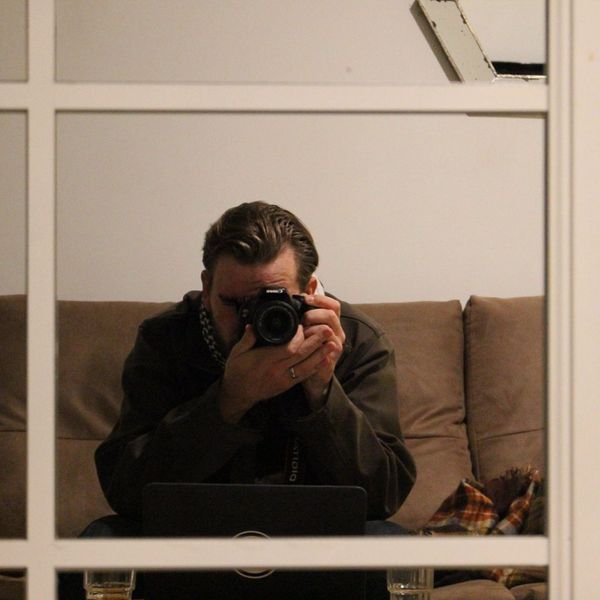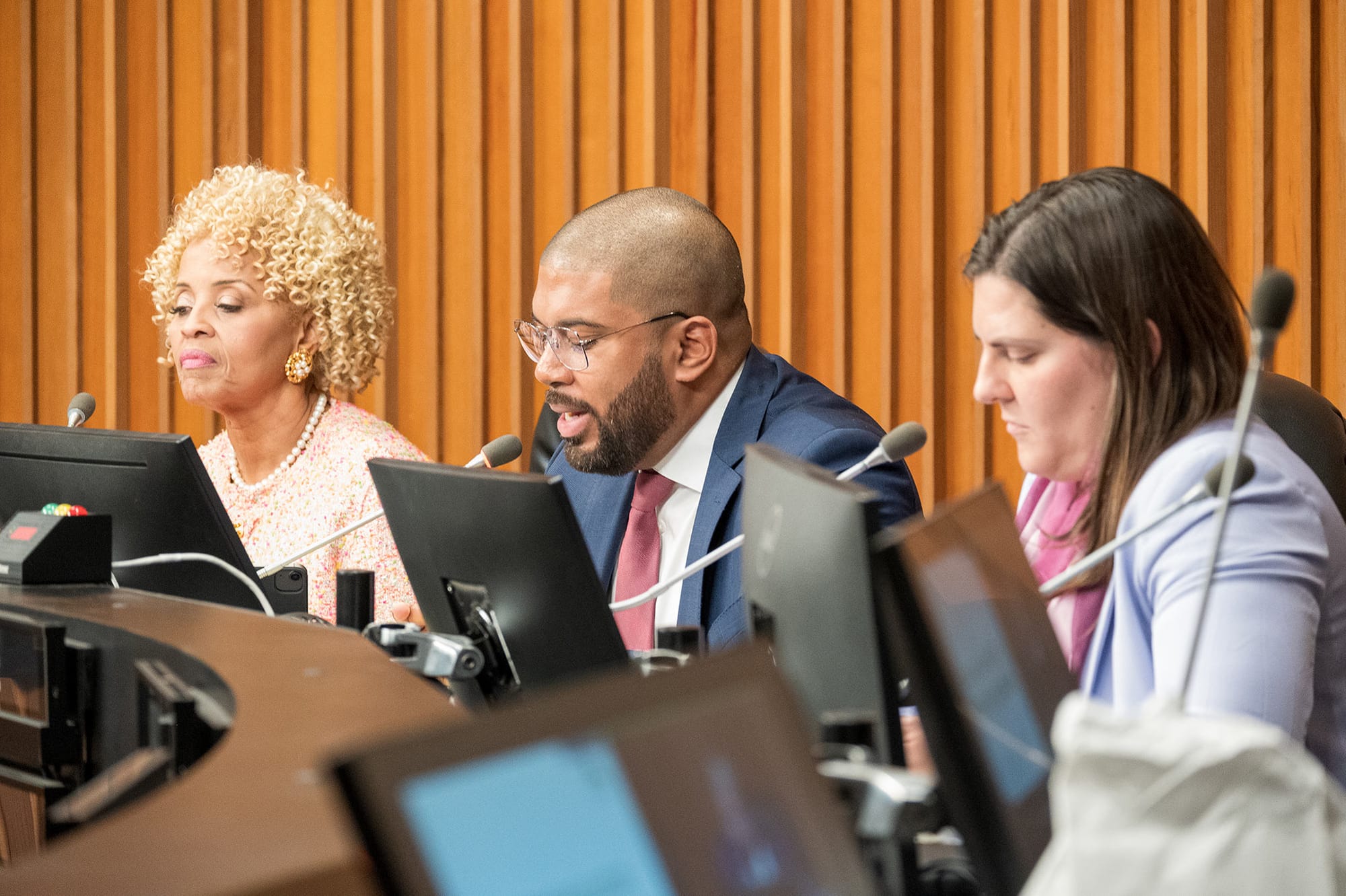SACRAMENTO – A federal judge who presided over 18 civil rights lawsuits against the city of Vallejo — including three police killings by one officer — had numerous opportunities to rule that the city had failed to properly train officers but instead found the department didn’t show “deliberate indifference” to officers violating people’s constitutional rights, which a prominent legal scholar says is indicative of “the phalanx of shields that have been erected to protect police.”
Joanna Schwartz, a professor of law at UCLA, wrote in her new book Shielded: How the Police Became Untouchable that Senior U.S. District Court Judge John Mendez “had firsthand knowledge of a pattern of substantial claims of constitutional violations by Vallejo police.” Mendez presided over 18 of 85 civil rights lawsuits filed against the city of Vallejo in a 10-year span, but never ruled that there was a pattern of unconstitutional policing in Vallejo.
Instead, Mendez and other federal judges routinely granted motions from city attorneys to deny claims that could have created more meaningful changes to the department by illustrating a pattern of failing to train officers to not violate people’s rights.
For Schwartz, Vallejo is an example of how it is nearly impossible to hold municipalities responsible for constitutional violations by their employees as courts have set exceedingly narrow restrictions on when judges can hold cities liable and require them to protect the constitutional rights of their citizens.
“A ruling that Vallejo police has a custom or policy of violating people’s constitutional rights could be the basis for a court order requiring Vallejo to change its policies and practices,” Schwartz wrote. “Even without this type of court order, a finding that Vallejo violated the Constitution might create additional political pressures that could help hasten meaningful change.”
Instead, the city has settled claims brought against its officers for millions of dollars, while those officers have typically been promoted instead of being held accountable for their actions.
‘Shielded’ examines how police escape accountability
Schwartz’s book uses the Vallejo Police Department as an example of how the judicial system of the United States protects police departments from liability, including when a barrage of lawsuits illustrate that a police department has a pattern of violating people’s civil rights through severe beatings and deadly shootings, among other things.
“Deeply and obviously dysfunctional police forces regularly escape liability for abuses by their officers. Case in point: Vallejo, California,” Schwartz wrote in her introduction to the chapter titled “Suing the City.”
Schwartz introduces the department by its basic statistics: officers in Vallejo killed 19 people between 2010 and 2020, meaning more people were killed by police in Vallejo, per capita, “in all but one of the hundred largest law enforcement agencies in the United States.” That equated to more than one-third of Vallejo police officers being involved in two or more shootings.
In that same decade, Schwartz wrote that she counted 85 civil rights lawsuits filed against the city of Vallejo due to the “gratuitous violence” Vallejo police committed against people who “posed little or no threat.”
That included ten lawsuits originating from events over eight months in 2012, when Vallejo police shot and killed six people. That year, police were responsible for 30% of the homicides in Vallejo.
In her book, Schwartz focuses on claims under Monell v. Department of Social Services, where the U.S. Supreme Court decided in 1978 that public agencies should be held liable in civil lawsuits brought under the Civil Rights Act of 1871 if an employee, such as a police officer, violates someone’s rights because of an official policy, a department custom, or deliberate indifference by superiors.
Holding a city liable for the conduct of its employees would encourage local municipalities to take steps to prevent civil rights violations, proponents of the theory argue. But critics say that it is an intrusion into the operations of local government. Since the 1978 ruling, the Supreme Court has narrowed the criteria for succeeding in a Monell claim substantially, so that plaintiffs must find evidence of nearly identical prior violations.
A barrage of lawsuits against Vallejo police have alleged that department leadership knew their officers were violating people’s civil rights, but didn’t make any adjustments — such as new policies, training or punishing problematic officers — and allowed violent behavior to go unchecked. But judges have consistently ruled against claims that the department failed to properly train its officers.
Typically Monell claims are dismissed early in a civil rights suit, and Vallejo is no exception. Mendez gave serious consideration to granting a Monell claim in a lawsuit filed by Joseph Johnson and the family of Mario Romero after the family presented expert testimony and showed that the department took no action amid the rash of shootings in 2012.
Vallejo Police officers Sean Kenney and Dustin Joseph shot Romero and Johnson while the two sat in Romero’s Ford Thunderbird outside of his family’s home in September 2012. Johnson survived but Romero did not. Family members say they witnessed Kenney reload and fire at Romero while standing on the car’s hood and maintain the city’s official narrative of the shooting was false.
The lawsuit alleged among other things that the high rate of police shootings in 2012 was the result of “a culture of indifference toward the lives and civil rights of its citizens,” and that the department had a practice of “condoning and tacitly encouraging the abuse of police authority.”
Ultimately, in a 2015 ruling against the Monell claims in the Romero case, Mendez acknowledged that there was “evidence of some systemic issues” with Vallejo police, but found Johnson and Romero’s family’s claim didn’t “meet the extremely stringent legal standards” under Monell because no other authority, such as the department’s internal affairs division or the Solano County District Attorney’s Office, had found any constitutional violations and none of the lawsuits filed against the department went before a jury.
“Although VPD officers shot and killed four people in the span of just three months in the middle of 2012 and Defendants deduced no pattern and made no changes in training in response, there is insufficient evidence that any of the other shootings by police resulted in constitutional violations,” Mendez wrote when he ruled against the Monell claim in the Romero case.
Mendez noted the “difficult task” of proving a failure to train, as “the constitutionality of police conduct is often not determined by an unbiased entity until years after the conduct has occurred.”
Essentially, Vallejo police’s pattern of not making changes in training or disciplining officers following shootings and other incidents while settling federal civil rights lawsuits have, so far, staved off further liability.
Johnson and Romero’s family would settle their civil rights lawsuit for $2 million, on the higher end of the payouts in lawsuits brought against the city and police department. Vallejo paid about $16 million for incidents from 2010 to 2020.
Mounting evidence
As Schwartz wrote in her book, at the time Mendez made the ruling about the Monell claim in the Romero killing, he was presiding over civil cases of two other men Kenney killed in 2012: Anton Barrett and Jeremiah Moore.
But Schwartz noted that Mendez didn’t bring up evidence of those or the other cases he’d presided over when ruling in favor of the city of Vallejo in the Barrett and Moore cases, which would settle for $235,000 and $250,000, respectively.
“In ignoring this other evidence, Judge Mendez was following the law,” Schwartz wrote, which illustrated how limited the city’s liability is in lawsuits against a government employees.
Yet it appears the department wasn’t alarmed by the rate of Kenney’s killings. Kenney would go on to be promoted to detective before retiring and starting a use-of-force training company hired by Bay Area law enforcement agencies to train officers on things like de-escalating a situation before firing their weapons.
Vallejo’s police chiefs didn’t discipline any of the officers involved in shootings for decades or consider that there were any larger issues at play in the department, nor did they make any changes in training, Schwartz wrote. Instead, all they did was “encourage” the officers who killed to “see a marriage and family therapist with a clinical background in post-traumatic stress disorder.”
Meanwhile, a troubling culture was festering in the department: Vallejo police officers bent the tips of each other's badges after participating in on-duty shootings beginning in 2003, a practice that continued until the 2019 police killing of Willie McCoy, according to a retired police captain and hours of court testimony.
Besides the barrage of cases stemming from 2012, Mendez is currently overseeing the case over the killing of McCoy, who was shot 38 times by six officers after he was found unresponsive in a Taco Bell drive-thru, allegedly with a gun on his lap. Reached for comment, Mendez’s judicial assistant cited judicial canon that prevents judges from commenting publicly on cases.
In the McCoy case, his family’s attorneys took greater steps to prove a pattern of constitutional violations by the department. The complaint listed twenty-one previous incidents alleging Vallejo police used excessive force to illustrate the city’s “ongoing failure to supervise, discipline and/or retrain the officers who engage in such conduct.”
Despite the narrow restrictions placed on a Monell claim by the Supreme Court, Mendez ruled against the city’s motion to dismiss those claims in 2020, before the badge-bending allegations had even been publicly revealed.
Melissa Nold, one of the attorneys representing McCoy’s family and outspoken critic of the Vallejo Police Department, said the McCoy case “may be the most robust Monell claim I’ll ever see in my career.”
“Bona fide Monell cases are very unusual and should be the city’s biggest concern at this point, although they don’t seem to realize it, yet,” Nold said. “Our facts are considerably worse and more significant than any of the cases I’ve researched.”
Trial for the McCoy family lawsuit is currently set for April 2024.
Nold is also representing McCoy’s neice, Deyana Jenkins, who alleges Vallejo police — including one of the officers who shot McCoy — pulled her over months after killing her cousin and Tased and arrested her without cause.
To date, as Schwartz noted in Shielded, “no judge or jury has found a constitutional violation by the city.”
“The Supreme Court’s Monell standard has let police shootings, bent badges, and gratuitous violence continue without legal consequences for Vallejo — and excuses similarly deep-seated dysfunction and corruption in departments across the country,” she wrote.
Scott Morris contributed to and edited this report. Editor's note: This story has been updated to correct Deyana Jenkins' relationship to Willie McCoy.
Before you go...
It’s expensive to produce the kind of high-quality journalism we do at the Vallejo Sun. And we rely on reader support so we can keep publishing.
If you enjoy our regular beat reporting, in-depth investigations, and deep-dive podcast episodes, chip in so we can keep doing this work and bringing you the journalism you rely on.
Click here to become a sustaining member of our newsroom.
THE VALLEJO SUN NEWSLETTER
Investigative reporting, regular updates, events and more
- policing
- courts
- Vallejo
- Vallejo Police Department
- Mario Romero
- Willie McCoy
- Joanna Schwartz
- UCLA
- Shielded
- John A. Mendez
- Monell v. Department of Social Services
- Sean Kenney
- Dustin Joseph
- Anton Barrett
- Jeremiah Moore
- Deyana Jenkins
- Melissa Nold

Brian Krans
Brian Krans is a reporter in the East Bay who covers public health, from cops to COVID. He has written for the Oaklandside, Healthline, California Healthline and the Appeal.
follow me :




